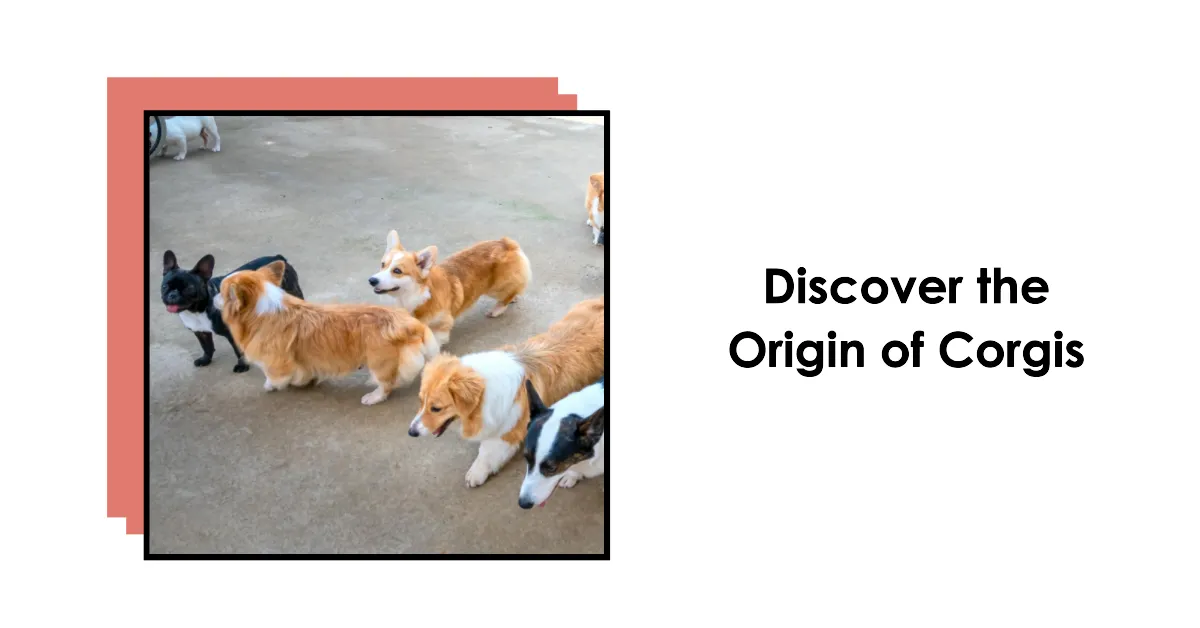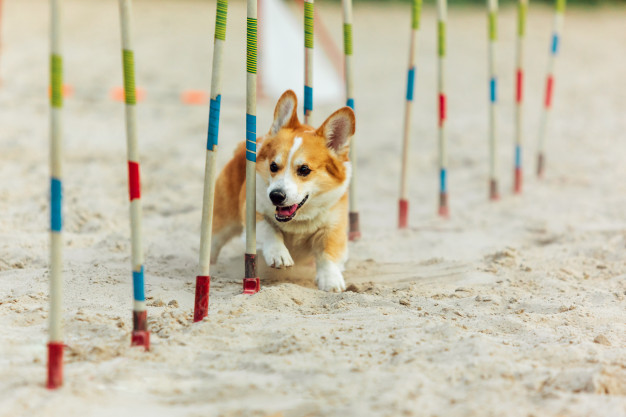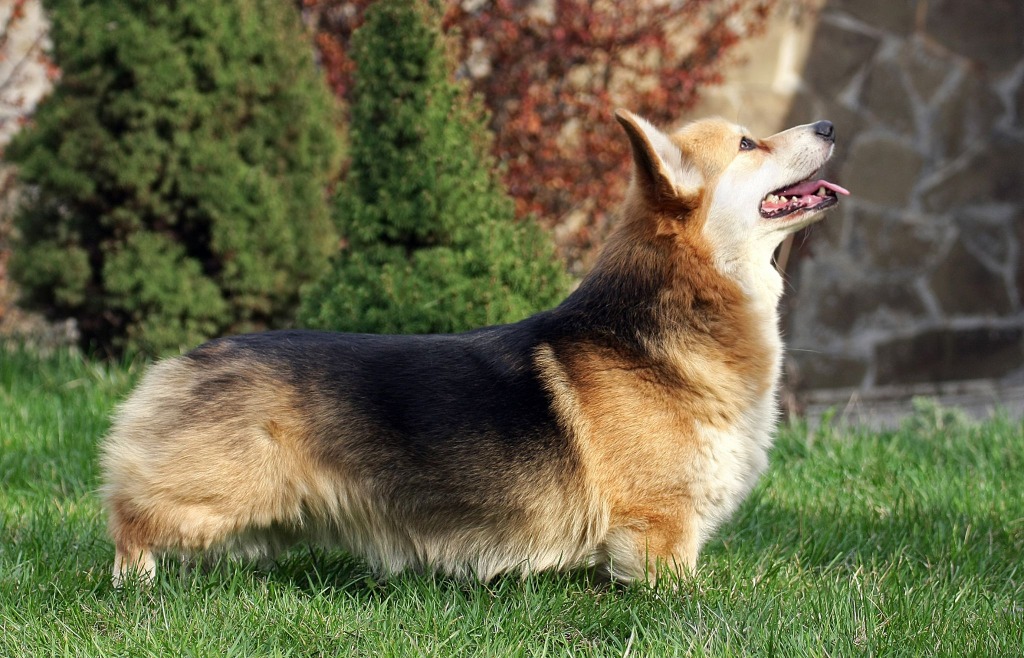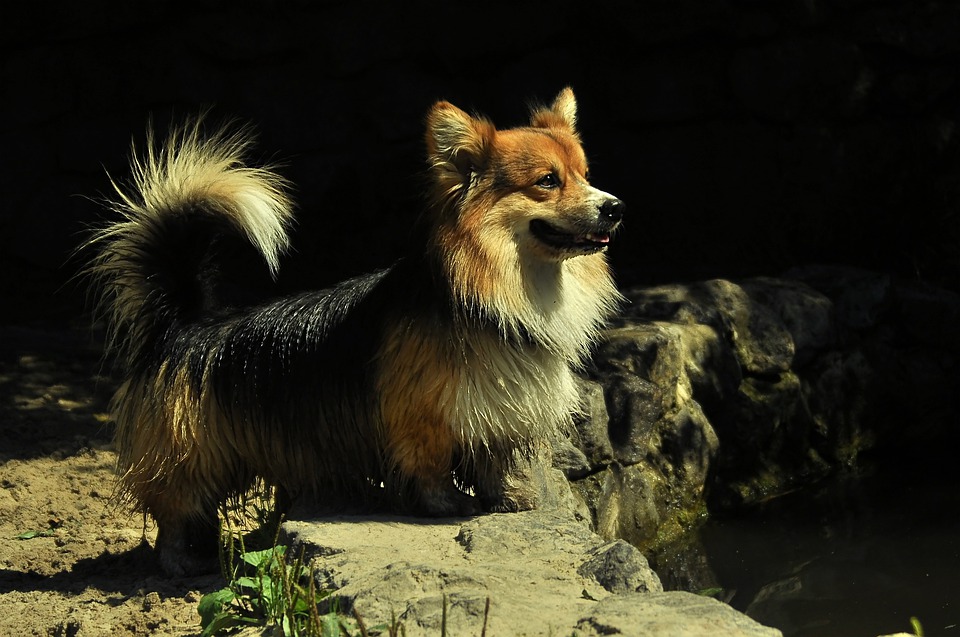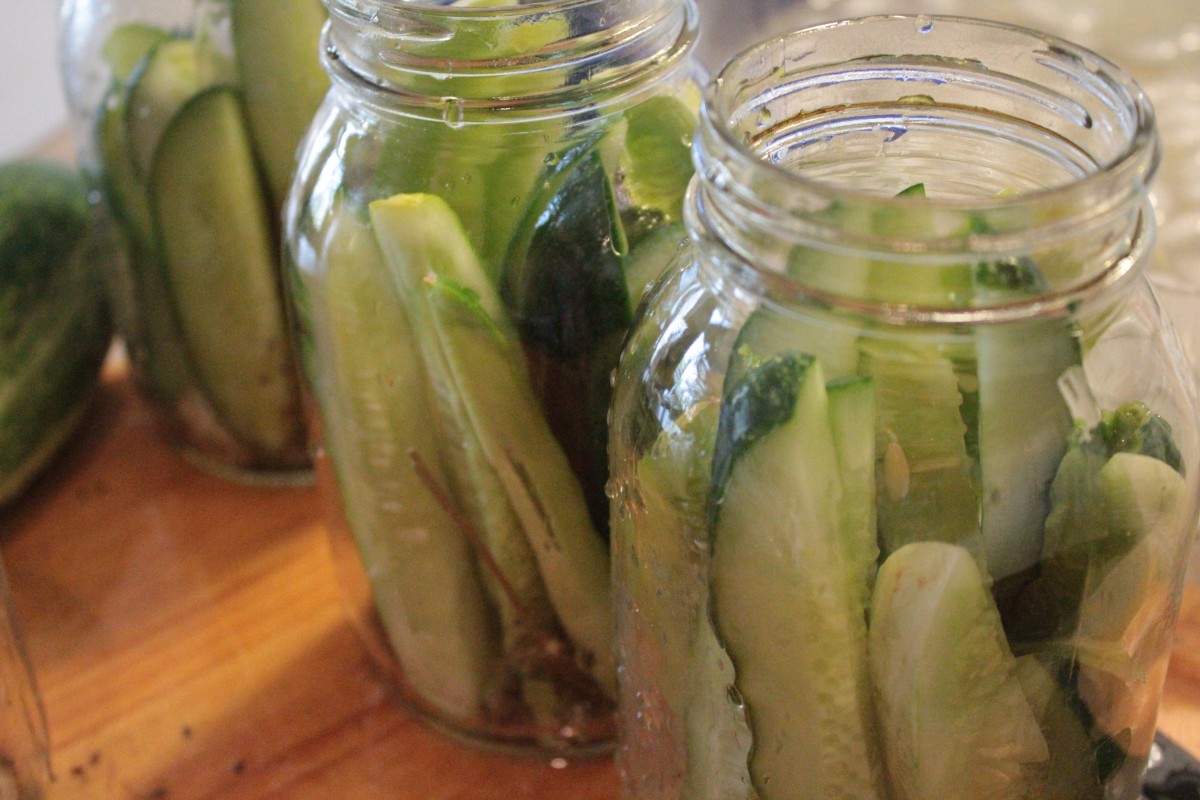How to Adjust Your Corgis Diet As They Age

Hey there, corgi owners! Did you know that as your furry friend gets older, their dietary needs change too? It's true! Just like humans, our beloved corgis need a little extra TLC when it comes to their food.
In fact, studies show that over 50% of dogs over the age of 10 suffer from some form of age-related health issues. But don't worry, adjusting their diet doesn't have to be a daunting task.
In this guide, we'll walk you through some simple steps to ensure your corgi stays healthy and happy as they age. From understanding their nutritional needs to managing their weight and considering supplements, we've got you covered.
So let's dive in and give your corgi the best diet possible for their golden years!
The Importance of Senior Dog Food
- You should consider switching to senior dog food to ensure your aging corgi receives the necessary nutrients for their health and well-being. As your furry friend gets older, their nutritional needs change, just like ours do.
Senior dog food is specially formulated to provide the balanced nutrition that aging dogs require. It contains the right amount of protein, vitamins, and minerals to support their aging bodies. With senior dog food, you can rest easy knowing that your corgi is getting everything they need to stay healthy.
Plus, it's packed with antioxidants and omega-3 fatty acids, which can help support their immune system and maintain healthy skin and coat. So, make the switch to senior dog food and give your corgi the best chance at a long and happy life.
- But it's not just about their diet, exercise plays a crucial role too. Regular exercise is vital for your aging corgi's overall well-being. It helps to keep their muscles strong and their joints mobile. Going for walks, playing fetch, or even a game of hide-and-seek can help keep your corgi active and engaged.
Not only will exercise help them maintain a healthy weight, but it also provides mental stimulation and reduces the risk of certain health conditions. Just be sure to tailor the exercise to your corgi's abilities and consult with your veterinarian if you have any concerns.
Understanding Nutritional Needs
Now that we've covered the importance of senior dog food, let's talk about understanding your corgi's nutritional needs as they age.
As your furry friend gets older, their dietary requirements may change. It's essential to make sure they're getting the right nutrients to support their aging body.
Age-Related Dietary Changes
To ensure your aging corgi receives the appropriate nutrition, understanding their age-related dietary changes is crucial. As dogs get older, their bodies go through various changes that may require adjustments to their diet.
Just like humans, senior dogs have specific nutritional needs that differ from those of younger dogs. Age-related dietary restrictions may include lower calorie intake, reduced fat content, and increased fiber to support digestion. Senior dog nutrition focuses on providing balanced meals that cater to their changing needs.
It's important to consult with your veterinarian to determine the best diet for your aging corgi. They can recommend specialized senior dog food or advise on adding supplements to their current diet.
With proper nutrition, you can help your furry friend age gracefully and maintain their overall health and well-being.
Optimal Nutrition for Aging
Understanding the nutritional needs of your aging corgi is essential for providing optimal nutrition. As your furry friend gets older, their bodies go through changes that require adjustments in their diet.
One important aspect is ensuring they have an optimal nutrient intake. Older corgis may have different nutrient requirements compared to when they were younger. It's important to consult with your vet to determine the right balance of nutrients for your aging corgi. They might recommend a diet that's lower in calories but higher in protein and healthy fats to support their aging bodies.
Additionally, dietary supplements can play a role in meeting their nutritional needs. Your vet can guide you on which supplements are safe and beneficial for your corgi's specific needs.
Adjusting Portion Sizes
Now that you understand the nutritional needs of your aging corgi, it's time to talk about adjusting portion sizes.
As your corgi gets older, their metabolism changes and they may not require as much food as before. Overfeeding can lead to health risks like obesity and joint problems, so it's important to monitor their weight and adjust their portions accordingly.
Aging Corgi's Changing Metabolism
As your Corgi ages, you'll need to adjust their portion sizes to accommodate their changing metabolism. Just like humans, our furry friends experience changes in their metabolism as they get older. This means that they may not be burning calories as efficiently as they used to.
It's important to keep an eye on their weight and make adjustments to their diet accordingly. One way to do this is by reducing the portion size of their meals. This will help them maintain a healthy weight and prevent any unnecessary strain on their joints.
Additionally, it's important to consider any changes in their exercise routine. If your Corgi isn't as active as before, they may require fewer calories.
Always consult with your veterinarian to determine the appropriate portion sizes for your aging Corgi.
Health Risks of Overfeeding
To avoid health risks associated with overfeeding, you should carefully adjust the portion sizes of your aging Corgi's meals. Feeding your furry friend too much can lead to a variety of issues, including obesity, diabetes, and joint problems.
As your Corgi gets older, their metabolism slows down, making it even more important to monitor their food intake. Start by consulting with your veterinarian to determine the appropriate portion size for your dog's age, weight, and activity level.
Generally, it's best to feed your aging Corgi smaller, more frequent meals throughout the day to prevent overeating. Remember to measure their food accurately and resist the temptation to give them extra treats.
Monitoring Weight and Portions
To ensure the health and well-being of your aging Corgi, it's essential to monitor their weight and adjust portion sizes accordingly. As your furry friend gets older, their metabolism may slow down, making it easier for them to gain weight. That's why keeping a close eye on their weight is crucial.
You can start by regularly weighing your Corgi and comparing the results to a healthy weight range for their age and breed. If you notice any significant weight gain or loss, it's time to make adjustments to their portion sizes. Portion control is key to maintaining a healthy weight.
Incorporating High-Quality Protein
Include plenty of high-quality protein sources in your aging corgi's diet to ensure their nutritional needs are met. Protein is essential for muscle maintenance and repair, as well as promoting a healthy coat and skin.
Here are four reasons why incorporating high-quality protein is important for your corgi's health:
- Muscle strength: As your corgi ages, their muscle mass may start to decline. Adequate protein intake can help maintain their muscle strength and mobility, keeping them active and energetic.
- Immune support: Protein is necessary for a strong immune system. It helps produce antibodies and enzymes that protect your corgi against diseases and infections.
- Weight management: Choosing appropriate protein levels can help your corgi maintain a healthy weight. Protein keeps your corgi feeling fuller for longer, reducing the likelihood of overeating and weight gain.
- Joint health: Corgis are prone to joint issues, especially as they age. Protein aids in the repair and maintenance of cartilage, keeping your corgi's joints healthy and mobile.
Remember to consult with your veterinarian to determine the right amount of protein for your aging corgi based on their specific needs.
Managing Weight and Obesity
To manage your aging corgi's weight and prevent obesity, it's important to keep an eye on their calorie intake and make sure they get enough exercise. Just like humans, corgis can gain weight as they get older, and this can lead to various health issues. So, how can you help your furry friend stay fit and healthy?
First, monitor their calorie intake. As dogs age, their metabolism slows down, so they don't need as many calories as they used to. Talk to your veterinarian to determine the appropriate daily calorie intake for your corgi based on their age, weight, and activity level. Be mindful of treats and table scraps, as these can quickly add up.
Second, make sure your corgi gets enough exercise. Regular walks, playtime, and interactive toys can help them burn off excess calories and maintain a healthy weight. However, keep in mind that as your corgi ages, their exercise needs may change. They mightn't be able to handle long walks or intense activities like they used to. So, adjust their exercise routine accordingly and consult with your vet for guidance.
Lastly, be aware of any dietary restrictions your aging corgi may have. Some corgis may develop food sensitivities or allergies as they age, so it's important to choose a diet that meets their specific needs. Your veterinarian can help you select the right food and provide guidance on portion sizes to prevent overeating.
Considering Joint Health Supplements
When considering how to adjust your aging corgi's diet, it's important to also consider incorporating joint health supplements. As your furry friend gets older, their joints may start to experience wear and tear, leading to discomfort and pain. Joint health supplements can help manage arthritis pain and support your corgi's overall joint health.
Here are four reasons why you should consider adding these supplements to your corgi's diet:
- Reduces inflammation: Joint health supplements contain ingredients like glucosamine and chondroitin that help reduce inflammation in your corgi's joints, providing relief from arthritis pain.
- Supports cartilage health: These supplements provide essential nutrients that support the health of your corgi's cartilage, preventing further damage and promoting joint flexibility.
- Improves mobility: By reducing joint pain and inflammation, joint health supplements can help improve your corgi's mobility, allowing them to stay active and enjoy their daily activities.
- Promotes overall joint health: Regularly giving your corgi joint health supplements can help maintain their joint health and prevent future joint problems.
Consulting With a Veterinarian
Consider scheduling a consultation with your veterinarian to discuss the best diet adjustments for your aging corgi. Your vet is an expert on pet nutrition and can provide valuable advice tailored specifically to your dog's needs.
As your corgi gets older, they may require dietary restrictions to ensure their health and well-being. Your veterinarian can help determine if your corgi needs a specialized diet, such as one that's lower in calories to prevent weight gain or one that's higher in certain nutrients to support their aging body.
They can also address any concerns you may have about your corgi's diet and provide recommendations for supplements or vitamins that can benefit your furry friend.
Frequently Asked Questions
Can I Continue Feeding My Senior Corgi Regular Dog Food Instead of Switching to Senior Dog Food?
You may be wondering if it's okay to keep feeding your senior corgi regular dog food instead of switching to senior dog food. Well, it's important to adjust portion sizes for their meals as they age to keep them healthy and happy.
How Often Should I Adjust the Portion Sizes of My Senior Corgi's Meals?
You should adjust the portion sizes of your senior corgi's meals every few months to ensure they're getting the right amount of food. As they age, it's important to switch to a senior dog food to meet their changing nutritional needs.
Are There Any Specific High-Quality Protein Sources That Are Recommended for Senior Corgis?
When it comes to your senior corgi's diet, high-quality protein sources are key. They provide the necessary nutrients for their aging bodies. Proper nutrition is vital for their well-being, so choose wisely!
What Are Some Signs That My Senior Corgi May Be Overweight or Obese?
If your senior corgi is looking a bit chunky, it might be a sign of obesity. You can help them lose weight by adjusting their diet and giving them plenty of exercise.
Are There Any Natural Remedies or Homeopathic Supplements That Can Help With My Senior Corgi's Joint Health?
You're wondering if there are any natural remedies or homeopathic supplements that can help with your senior corgi's joint health. Well, there are some options out there that could potentially improve their mobility and comfort.

